#Pakistan Muslim League-Nawaz
Explore tagged Tumblr posts
Text
Mian Dilshad Niazi
Date of Birth: 25 January 1973 Father's Name: Mian Muhammad Gender: Male Country: Pakistan
Mian Dilshad Niazi was born and raised in Pakistan, Faisalabad. Mian Dilshad Niazi has made significant contributions as a dedicated member of the Pakistan Muslim League-Nawaz (PMLN). He is a prominent political figure in the region and currently serves as the President of the Social Media Team for PP-114, a key constituency in Faisalabad. His leadership in digital strategy and engagement has played a vital role in promoting the party's initiatives and strengthening its presence online.
Work: (PML)N
Website: Mian Dilshad Niazi
#Mian Dilshad Niazi#Dilshad Niazi#Sadar Mian Dilshad Niazi#pmln#politics#politicians#political party#pakistan muslim league nawaz
1 note
·
View note
Text
Pakistan General Election 2024
General election are going to be held in February 2024 in Pakistan. It should be remembered that before this, the general elections were held on 25 July 2018. In which three major parties of Pakistan participated, namely Pakistan Muslim League-N, Pakistan Tehreek-e-Insaf, and Pakistan Peoples Party. But the Pakistan Tehreek-e-Insaf won 149 seats in the National Assembly While the Pakistan Muslim…
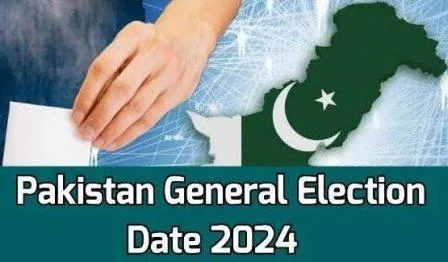
View On WordPress
#Asif Ali Zardari#Benazir Income Support Program#Bilawal Bhutto Zardari#CPEC#development#Election#free#General Election Year 2024#hub#Imran Khan#Imran Khan Niazi#Life#lifestyle#Manifesto#Mian Muhammad Nawaz Sharif#pakistan#Pakistan General Election Year 2024#Pakistan Muslim League-N#Pakistan Tehreek-e-Insaf#Parties#Power#Sardar Awais Khan Leghari#Shaheed Benazir Bhutto#Shaheed Zulfiqar Ali Bhutto#Unemployment
0 notes
Text
Pakistan Economy Crisis: पाकिस्तान की बर्बादी के लिए भारत जिम्मेदार नहीं: नवाज़ शरीफ़
लाहौर: पाकिस्तान के पूर्व प्रधानमंत्री नवाज शरीफ (Nawaz Sharif) ने मंगलवार को कहा कि न तो भारत और न ही अमेरिका की वजह से पाकिस्तान नकदी संकट (Pakistan Economy Crisis) से जूझ रहा है। बल्कि पाकिस्तान की जनता ने अपने पैरों पर कुल्हाड़ी मारी है।शरीफ ने देश में बढ़ रहे सभी संकटों के लिए शक्तिशाली सैन्य प्रतिष्ठान को जिम्मेदार ठहराया है। पाकिस्तान मुस्लिम लीग-नवाज (Pakistan Muslim League – N) के टिकट के…
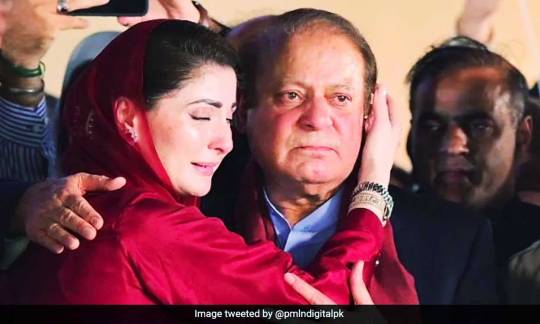
View On WordPress
#Nawaz Sharif#Pakistan crisis#Pakistan Economy Crisis#Pakistan Muslim League#नवाज शरीफ#पाकिस्तान मुस्लिम लीग
0 notes
Text
پاکستانی فوج
پاکستانی فوج Pakistan army تشکیلِ پاکستان(1947) سے لیکر عمران خان کی حکومت(2022) کو ناجائز حربوں سے گرانے تک پاکستانی فوج کا پاکستانی سیاست میں انتہائی بھیانک، شرمناک اور تباہ کن کردار رہا ہے! پدرِ ملت کی انتھک محنتوں سے جو ریاست پاکستان کی صورت میں تشکیل پائی اسکی تقسیم ہی غلط تھی، یوں اس غلط تقسیم کو ئی 70 سال بعد انگریز خود اس بات کا اظہار کرنے…
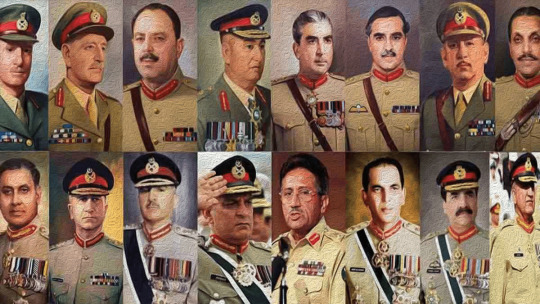
View On WordPress
#Asim Munir#Chief of Army Staff (Pakistan)#General Qamar Javed Bajwa#Imran Khan#Muslim League N#Nawaz Sharif#Pakistan Army#Pervez Musharraf#PPP#PTI#Raheel Sharif#Zardari#پاکستانی فوج
0 notes
Text
MIRAN SHAH, Pakistan—Mohsin Dawar’s campaign for re-election to Pakistan’s parliament was almost cut short before it began in early January when his convoy was ambushed in a village just a few minutes’ drive from his home in Miran Shah in Pakistan’s North Waziristan district, near the lawless borderlands with Afghanistan. As his car came under attack from militants armed with automatic weapons, sniper rifles, and rocket-propelled grenades, he and his team were lured into a compound by residents who promised them safety.
It was a trap. Once the gates closed behind Dawar, the attack intensified. For almost an hour, he said, they were pinned down. Police and Pakistan Army backup finally arrived but not before two of Dawar’s team had been shot and injured. The vehicle took more than 80 bullets, and the windows show just how accurate the attackers’ aim was: Either one of the shots to the windshield or passenger window would have struck and likely killed him if he hadn’t been protected by bulletproof glass.
The Jan. 3 attack on a popular, outspoken, liberal leader in one of the most vulnerable regions of a country fighting a growing insurgency by extremist militants hardly registered in Pakistan, where most believe the military attempted—and failed—to manipulate the Feb. 8 election in an effort to install Nawaz Sharif as prime minister for a fourth time and where media operate under tight government control.
The election wasn’t quite the foregone conclusion that had been expected, with candidates aligned with the jailed cricket star-turned-populist leader Imran Khan winning more votes than each of the major parties—the Pakistan Muslim League-Nawaz (PML-N) and the Pakistan Peoples Party—forcing them into a coalition to get the majority needed to form a government. PML-N leader Nawaz Sharif nominated his brother, Shehbaz Sharif, to become prime minister and his daughter Maryam Nawaz as chief minister of Punjab province, ensuring the dynastic line continues.
Candidates across the country, not only those loyal to Khan, alleged that the results had been rigged against them and in favor of military-backed candidates. Two days after the election, with his seat still undeclared amid growing concerns nationwide about vote rigging, Dawar and about a dozen of his supporters were injured when security forces opened fire on them as they gathered outside the official counting room.
At least three people died of their injuries; What Dawar had believed was an unassailable lead, according to polling by his secular National Democratic Movement party, had disappeared. In the count that was listed as final by Pakistan’s Election Commission, the seat went to Misbah Uddin of the Taliban-aligned Jamiat Ulama-e-Islam-Fazl party. Dawar is still recovering from a serious leg wound.
Dawar’s hometown is, once again, the battleground of what he calls “Project Taliban”—a war against the Pakistani state.
The Taliban’s transnational ambitions are threatening security beyond the borders of Afghanistan, and nowhere is this more evident than in Pakistan��s northwest, where the militant presence has been growing since the terrorist-led group came back to power in August 2021. Attacks on civilians, soldiers, and police have soared. The region bristles with checkpoints and hilltop outposts and is heavily patrolled on the ground and in the air by the Pakistan Army and armed border police. That’s during daylight hours, Dawar told Foreign Policy. Once night falls, it’s a different story.
“The Army checkposts you will only see during the daytime. Before sunset, they go to their barracks, and the people of Waziristan are at the disposal of the militants. Everyone has to secure himself or herself for their own protection,” he said. “It is militarized, and I believe it is a continuation of a proxy war that was started long ago. ‘Project Taliban’ is still continuing.”
The roots of militancy and terrorism in Waziristan go back to colonial times, when the mostly Pashtun people here were characterized as fearless fighters and pressed into service for the British. The stereotype stuck; the region became a center of recruitment and training for young men to fight the Soviets after Moscow’s 1979 invasion of Afghanistan.
After the United States led an invasion of Afghanistan in 2001 in retaliation for the 9/11 attacks, leaders of the Taliban and al Qaeda moved over the border and for the following 20 years enjoyed the protection of the Pakistani military’s intelligence wing, the Inter-Services Intelligence (ISI) agency.
The ISI wanted a tame Taliban-led Afghanistan to thwart the ambitions of archrival India to become the dominant regional power. The Taliban had different ideas. The group’s return to power has inspired affiliated and like-minded groups worldwide, as the extremist regime provides safe haven for dozens of militant groups, according to the U.N. Security Council. They now openly use Afghanistan as a base to train fighters seeking to overthrow governments from China and Tajikistan to Iran and Israel. Among them is Tehrik-i-Taliban Pakistan (TTP), which, Afrasiab Khattak, a former Pakistani lawmaker and now a political analyst, said, is “just Taliban, there is no difference.”
Earlier this month, the Taliban reiterated the group’s stance on the international border between Afghanistan and Pakistan when the acting foreign minister, Sher Mohammad Abbas Stanikzai, said the government doesn’t recognize the Durand Line that has delineated the two countries since 1893. The line runs through the tribal regions, dividing ethnic Pashtun and Baloch tribespeople. Recent bilateral tensions have often focused on the border, with tit-for-tat closures impacting cross-border trade.
In comments that Pakistan’s foreign ministry later called “fanciful” and “self-serving”—and which underlined the simmering hostility between Pakistan and the Taliban it helped put in power—Stanikzai said: “We have never recognized Durand and will never recognize it; today half of Afghanistan is separated and is on the other side of the Durand Line. Durand is the line which was drawn by the English on the heart of Afghans.”
The Security Council said in 2022 that the TTP had up to 5,500 fighters in Afghanistan. That number has likely risen, Dawar said, as neither country, mired in economic mismanagement and crisis, can offer its youthful population an alternative livelihood. Victory brought strength, Dawar said, and the Taliban “can attract the youth because money and power is what attracts youth the most.”
The simmering conflict threatens to return Pakistan’s northwest to the wasteland of less than decade ago, when the TTP controlled the region: Dissenters were routinely killed. Terrorists turned the Federally Administered Tribal Areas (FATA), now part of Khyber Pakhtunkhwa province after an administrative merger in 2018, into a death zone. Millions of people were displaced as those who could leave fled to peace and safety.
Those who stayed lived in fear and poverty until the Army finally took action in 2016 and ended the TTP’s 10-year reign by simply killing them, often in attacks that also killed civilians, or pushing them over the porous border into Afghanistan, where they joined Taliban forces fighting the U.S.-supported republic until it collapsed in 2021.
The TTP wants an independent state in these border regions. It broke a cease-fire with the government in November 2022 and has demanded that the merger of the FATA with Khyber Pakhtunkhwa be reversed. Attacks on the military and police have escalated alarmingly, presenting what a senior government official, who spoke anonymously, called “not only an existential threat to the state but also to the common man”—a recognition that what Dawar calls “Project Taliban” not only threatens to engulf the northwest but, if not contained, poses a potential threat to a fragile and barely stable state.
Caretaker Prime Minister Anwaar-ul-Haq Kakar disagreed, telling reporters before the Feb. 8 vote that the military had the upper hand in the region, by virtue of numbers alone. “I don’t see that they pose an existential threat to the state of Pakistan,” he said, while nevertheless conceding it was a “big challenge” that could take years to dislodge.
He could be right. After the failure of peace talks, ironically brokered by the Taliban’s acting interior minister, U.N.-listed terrorist Sirajuddin Haqqani, Pakistan stepped up pressure on the TTP. Asfandyar Mir, an expert on South Asian political and security issues, said this appeared to have made a “marginal” difference.
“For instance, we haven’t seen a complex or suicide bombing attack by the TTP or one of its fronts for a couple of months now,” he said. “In that sense, it appears the Taliban is sensitive to pressure,” though “smaller-scale attacks and the erosion of Pakistani state authority in parts of the northwest continue.” Things could change, he said, once a new government is installed and, perhaps, brings some stability to the political landscape.
For the people of Waziristan, struggling to survive unemployment, a lack of development, and government neglect of basic services such as roads, electricity, clean water, and education—coupled with a downturn in vital cross-border trade with Afghanistan—priorities have again switched to peace. “The local people have learned through their own bitter experience of devastating war” what a Taliban resurgence means, said Khattak, the political analyst. The security establishment is playing a dangerous game, indulging the TTP so that “local people become so desperate they want the military to come in and help them,” he said.
Hundreds of thousands of people have marched through the streets and bazaars of North and South Waziristan over the past year, demanding action against terrorism and an end to state violence. Yet it continues. “No one is safe. Everyone is a target,” said a man in his 30s as he rolled off a list of potential victims: politicians, business people, teachers, doctors, journalists, civic activists, women’s rights advocates, anyone deemed “un-Islamic.” Even barbers are not immune from extremists who ban men from shaving: The day before the Jan. 3 attack on Dawar’s convoy, the bodies of six young hairdressers were found in the nearby town of Mir Ali.
Another local resident pointed to a “Taliban checkpoint” on the road between Miran Shah and the bustling town of Bannu. The long-haired, kohl-eyed, gun-toting youths in sequined caps stand outside their roadside hut in the shadow of an Army post on the hill above. Around the clock, the resident said, they randomly stop vehicles to shake down the drivers. “It’s just for money,” he said. “Money and power.”
But it’s killing, too, “on a daily basis,” said a government worker who left Miran Shah with his family at the height of the TTP terror and visited in early February from Peshawar so he and his wife could vote for Dawar. The aim, he said, is “to create an atmosphere of fear so that people leave and what is here is theirs.”
Dawar said the turning of the Taliban tables on Pakistan “was predictable.” The Taliban “are now a threat to Central Asia. They are now a threat to Iran, to Pakistan, and to even China. All of them thought we will control the Taliban after the takeover. The problem is it didn’t happen,” he said.
In 2011, then-U.S. Secretary of State Hillary Clinton warned Pakistan’s leaders that they couldn’t keep “snakes,” as she called the Taliban, in their own backyard and “expect them only to bite your neighbors.”
“There used to be a time when people were sent from here to Afghanistan. Now they are coming around, they are biting,” Dawar said.
4 notes
·
View notes
Text
By: PTI
Published: Jun 18, 2023
LAHORE: Succumbing to the demands of a radical Islamist party, the Pakistan government has agreed to try blasphemy suspects under terrorism charges in addition to the other sections of the country's penal code. The Tehreek-i-Labbaik Pakistan (TLP) ended its 25-day-long march protest at Sarai Alamgir, Gujrat district, some 200 km from Lahore, on Saturday after signing a pact with the Pakistan Muslim League-Nawaz (PML-N)-led federal government. Federal Interior Minister Rana Sanaullah said the government has accepted "all legitimate" demands of the TLP, especially on blasphemy laws. In a 12-point agreement signed on Saturday with the TLP, the federal government agreed to book those accused of committing blasphemy and charged with Section 295-C (use of derogatory remarks, etc., in respect of the Holy Prophet) of Pakistan Penal Code under the Anti-Terrorism Act (ATA), 1997, too. "Besides, speedy trials of the blasphemy accused will be ensured. For the first time, a Counter Blasphemy Wing (CBW) will be established under the Federal Investigation Agency (FIA)," Sanaullah said, adding the government would ensure steps to block blasphemous content on social media. The radical Islamic group gained political capital as the federal government agreed to issue a letter declaring that the TLP was not a terrorist organisation, the Dawn newspaper reported. The government also conceded to lift the ban on the coverage of TLP on broadcast and social media while agreeing to withdraw all political cases filed against TLP workers and leaders. Sanaullah said the TLP leaders whose names have been taken off the Fourth Schedule of the Anti-Terrorism Act, 1997, will have the freedom of movement, and the federal government will issue directives to provincial governments for it. According to Amnesty International, Pakistan's blasphemy laws are often used against religious minorities and others who are the target of false accusations. The addition of terrorism charges will make the blasphemy suspects more vulnerable.
==
https://theprint.in/opinion/security-code/pakistan-is-being-run-by-its-very-own-ayatollahs-but-this-time-jihadists-arent-to-blame/1635385/
Even if it doesn’t call them by their name, Pakistan is being quietly run by its own Ayatollahs, who negotiate with the State on behalf of a higher sovereign. They are laying the foundations for turning the country into a Shari’a-run Islamic State, more surely than jihadists who have escalated violent operations across Pakistan.
Pakistan is becoming the new Iran.
#Pakistan#blasphemy#blasphemy laws#islam#radical islam#prophet muhammad#muhammad#religion#theocracy#islamic regime#islamic republic of pakistan#sharia#shari'a#islamic state#religion is a mental illness
8 notes
·
View notes
Text
Govt urges PTI not to abandon dialogue process for the sake of political stability
Pakistan Muslim League-Nawaz Senator Irfan Siddiqui speaking to journalists outside Parliament House in Islamabad, January 23, 2025. — Screengrab via YouTube/Geo News Terming the Pakistan Tehreek-e-Insaf’s (PTI) decision to end the ongoing negotiations with the government “unfortunate”, the government has urged the former ruling party to “reconsider it as the deadline of seven working days ends…

View On WordPress
0 notes
Text
Access to Imran becomes sticking point in talks
ISLAMABAD: Talks between the Pakistan Muslim League-Nawaz (PML-N)-led ruling coalition and the Pakistan Tehreek-e-Insaf (PTI) hit a snag on Tuesday after the opposition’s negotiating team was denied access to PTI founder Imran Khan, according to the PTI. At a press conference, PTI leadership questioned why they were not allowed to meet their incarcerated leader, despite assurances from the…
0 notes
Text
'Free Imran Khan': PTI welcomes Trump's aide statement as PML-N calls for 'respecting sovereignty' - Geo News
December 25, 2024 The Pakistan Tehreek-e-Insaf (PTI) has welcomed the statement of Richard Grenell, US President-elect Donald Trump’s nominee as envoy for special missions — who advocated for the release of incarcerated party founder Imran Khan, with the ruling Pakistan Muslim League-Nawaz (PML-N) urging the United States to respect the country’s sovereignty.Grenell, who is also a close confidant…
0 notes
Text
25 December: Birthday of Pakistan prominent Leader Nawaz Sharif
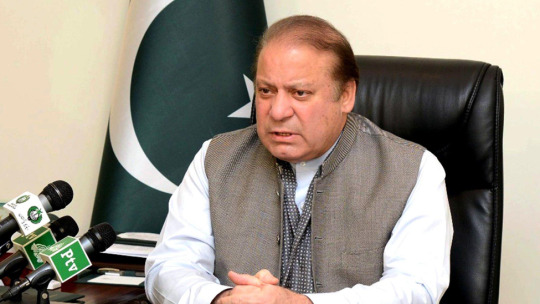
Nawaz Sharif, born on December 25, 1949, in Lahore, Pakistan, is a famous Pakistani politician and businessman who has been the country's Prime Minister three times: from 1990 to 1993, 1997 to 1999, and 2013 to 2017.
Sharif belongs to the prominent Sharif family, whose business empire is the Ittefaq Group, interested in sugar, steel, and textiles. He got an LL.B. from the University of the Punjab at Lahore before entering his family's business.
Political Career
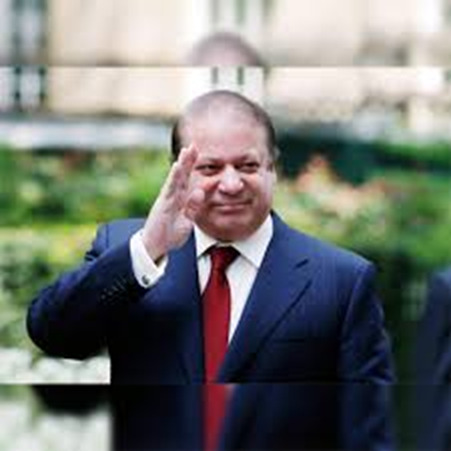
Sharif started his political career in the early 1980s as he was appointed the Finance Minister of Punjab province. Later he took the position of Chief Minister of Punjab in 1985 and continued until 1990.
He won his first term as the Prime Minister of Pakistan through the Pakistan Muslim League (Nawaz) [PML-N] as the leader in October of 1990. It was after the dismissal of Prime Minister Benazir Bhutto by President Ghulam Ishaq Khan when using his rights under a constitutional clause granting him the right to dissolve the elected government if they were deemed corrupt or ineffectual. During his first term, Sharif pursued economic liberalization and infrastructural development.
Second Terms
However, his tenure was cut short in 1993 after conflicts with the President resulted in his resignation. In 1997, he regained power with a handsome majority in parliament, thus allowing him to implement constitutional amendments that curtailed presidential powers and enhanced the role of the Prime Minister.
His second term witnessed Pakistan's first nuclear tests in 1998, a response to India's tests, which led to international sanctions. In 1999, his government was overthrown in a military coup led by General Pervez Musharraf, resulting in Sharif's exile to Saudi Arabia.
After years in exile, Sharif returned to Pakistan and re-entered politics. He remained as Prime Minister in 2013 for a third time, concentrating on the matters of economic reforms, energy projects, and infrastructure, which included the start of the China-Pakistan Economic Corridor (CPEC).
Jail term and Allegations
However, he also faced allegations of corruption in his term, for which he was disqualified from holding office by the Supreme Court of Pakistan in 2017 after the Panama Papers leakage. Since then, he has been under constant legal pressures and received convictions in prison for corruption cases. In 2019, for medical treatment, he arrived in London on bail.
In addition, he has also been declared an absconder by a Pakistan court; however, subsequently, the Islamabad High Court had granted him protective bail in the Avenfield and Al-Aziza cases. In 2023, after four years of exile, he made a comeback to Pakistan, for which he was acquitted by the Islamabad High Court in the Avenfield and Al-Azizia Steel Mills cases.
Family and Personal Life
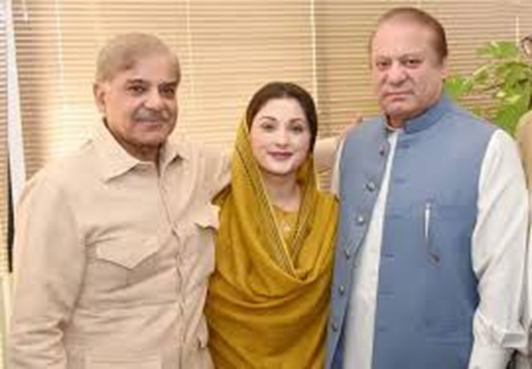
Nawaz Sharif is married to Kulsoom Nawaz who died in 2018. He has four children, one of whom, Maryam Nawaz, is actively involved in the politics of Pakistan. His younger brother, Shehbaz Sharif, is also an important political figure, who served as the Chief Minister of Punjab and later became the Prime Minister of Pakistan.
Legacy and Impact

Sharif's political life has been characterized by remarkable success and scandals. Major infrastructure projects and moves towards economic liberalization marked his rule. However, charges of corruption and battles with the military have also characterized much of his political career. He has led the PML-N through a good part of the country's political history for decades now.
Recent Developments
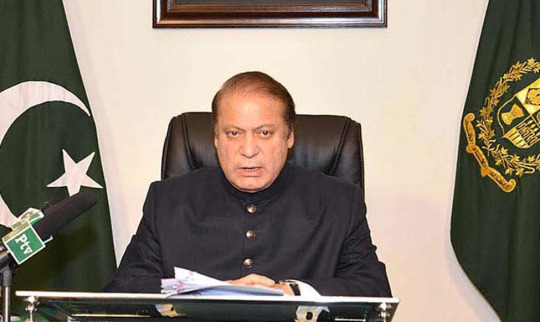
As of December 2024, Nawaz Sharif continues to be a prominent Pakistani politician. His return from exile and acquittal by the courts in major cases of corruption has rejuvenated his political fortunes. As of now, the PML-N remains one of the major political forces within the country, with Nawaz Sharif playing an important role in its control and strategy.
Stay tuned, visit Nawaz Sharif's Journey: From Prime Minister to Politics and Imprisonment.
0 notes
Text
HOW TO IMPLEMENT VERDICTS OF
SUPREME COURT OF PAKISTAN
IN SO-CALLED ISLAMIC REPUBLIC OF PAKISTAN,
WHICH BY DEFINITION IS
NEITHER ISLAMIC NOR REPUBLIC,
UNFORTUNATELY!
The Problem With The Implementation of Pakistan’s Supreme Court Verdicts
The recent ruling fixing a date for the Punjab provincial assembly elections is deeply controversial as it lays bare the apex court’s partisan bias.
Recent rulings by the Pakistan Supreme Court have thrust it into the middle of the ongoing political crisis in the country. These decisions, often made by partisan judges, are eroding the stature of and public confidence in Pakistan’s judiciary.
For over a year now, Pakistan’s political parties have been wrangling over the holding of elections. Pakistan Tehreek-e-Insaf (PTI) chief and former Prime Minister Imran Khan has been pushing for elections to the National Assembly (NA) to be advanced and for the Punjab and Khyber Pakhtunkhwa provincial assembly elections to be held before general elections. The Pakistan Muslim League-Nawaz (PML-N)- led government prefers the elections to be held at the same time. Elections to the NA are due later this year.
Amid this political wrangling, Chief Justice Umar Ata Bandial has come under scrutiny for his suo motu action on the Punjab assembly elections. Earlier this month, a three-member bench led by Bandial fixed May 14 as the new date for elections to the Punjab assembly. In doing so, he quashed a decision by the Election Commission of Pakistan (ECP) to defer polls in the province from April 10 to October 8.
This Supreme Court ruling is a major setback to the Shehbaz Sharif government, which has been trying to defer elections to the Punjab assembly, which was dissolved on January 13. The ruling PML-N-Pakistan People’s Party alliance is opposed to holding assembly elections in Punjab ahead of national elections.
As per the rules, elections are to be held under a caretaker government. With an elected government in place in Punjab, especially should that be led by the opposition PTI, the chances of victory for the ruling combine in Pakistan’s most populous and electorally crucial province in the general election could be undermined.
Sharif’s government has openly objected to the Supreme Court order to hold assembly elections in Punjab on May 14, saying that this is meant to facilitate victory by the PTI. The PTI, which enjoys immense popularity in Pakistan, believes it can win the upcoming election in Punjab, which will give it an upper hand administratively in the province when the NA elections take place subsequently across Pakistan.
Chief Justice Bandial’s authority and neutrality have been further eroded following revelations that the Supreme Court judges objected to the initiation of proceedings under Article 184(3) of the Constitution on the PTI’s petition regarding polls in Punjab.
When Bandial ruled in favor of early elections in Punjab, a number of top judges ruled that PTI’s suo motu request was dismissed on the ground of maintainability. The objection from the judges was based on their understanding that such action should not be taken without consulting all members of the court, and that the issue was pending in provincial courts and didn’t qualify as an issue of public interest.
The ruling coalition is in no mood to implement the top court’s rulings, which it believes may undermine its electoral prospects in the upcoming general elections.
Meanwhile, the ECP has complained that its constitutional authority has been undermined by the Supreme Court as the latter issued a date for Punjab assembly elections without its consent.
To find a way out of the situation, the parliament has tried to enact legislation to curtail the powers of the Chief Justice of Pakistan (CJP) with regard to unilaterally taking suo motu actions. However, earlier this month Bandial ruled that the bill curtailing the CJP’s powers will remain ineffective even if it becomes law. The ruling virtually undermines the legislature’s ability to do its work.
The situation has gotten to a point where the state seems to be in a revolt against the top judge’s orders over the elections. The State Bank of Pakistan has refused to obey the chief justice’s order to directly allocate funds to the ECP without the parliament’s approval. The Defense Ministry has made it clear that it cannot allocate security personnel as they are busy with military operations across the country. Meanwhile, the government has refused to enter into negotiations with PTI leadership under pressure from the Supreme Court.
This is not the first time that the apex court’s chief justices have tried to intervene in matters that are beyond their remit, undermining the judiciary’s legitimacy and harming Pakistan’s interests at home and abroad.
Rulings by Supreme Court judges have in fact left Pakistan weaker and caused trouble for policymakers and concerns for international investors. One of the most notable examples in this regard is the verdict handed out by former Chief Justice Iftikhar Chaudhary in the Reko Diq deal in 2013. The ruling damaged Pakistan’s reputation among investors and cost it financially too.
During his term at the helm, Chief Justice Saqib Nisar gave several controversial verdicts that were beyond his constitutional authority. Not only was Nisar behind the scandalous initiative of establishing a fund to collect donations for the construction of a dam but also, he repeatedly interfered in daily administrative affairs by using suo motu authority of his office to an unprecedented extent.
The Supreme Court is tasked with providing a fair and impartial interpretation of the law. However, its recent decisions have created an atmosphere of uncertainty in the country as citizens are unsure of how these decisions will be implemented. It is now up to the Supreme Court to prove that it can remain impartial and make decisions as per the Constitution rather than politics. Only then can it restore public trust in the judiciary and prevent further damage to the institution and the country.
REFERENCES:
Wikipedia
Carnegie Endowment for International Peace
https://carnegieendowment.org/2022/06/23/politics-at-bench-pakistani...
The Diplomat
0 notes
Text
Ex-Pak PM Nawaz Sharif jets off to UK for medical treatment
Lahore: Pakistan’s former prime minister Nawaz Sharif left for London Friday for medical treatments, according to his party. The Pakistan Muslim League-Nawaz (PML-N) supremo’s visit to the UK comes a year after he returned to Pakistan from London following a four-year-old self-imposed exile. The 74-year-old three-time former premier reached the Lahore Airport from his Jati Umra residence under…
0 notes
Text
With the compliments from, The Directorate General Public Relations,
Government of the Punjab, Lahore.Ph:99201390
No.1107
HANDOUT(A)
CM Maryam Nawaz Sharif Meets MPAs Safdar Hussain Sahi and Muhammad Zubair Khan
Lahore, 23 October 2024:
Chief Minister Punjab Maryam Nawaz Sharif met Members Provincial Assembly (MPAs) Safdar Hussain Sahi and Muhammad Zubair Khan to discuss public issues and development needs of their respective constituencies. Over all political situation in the country and party affairs of PML-N also came under discussion in the meeting. Madam Chief Minister said,”Serving people is our first priority as per manifesto of Pakistan Muslim League-N.” She added,”In a short span of time, Punjab has been put on a path of development in real sense.”
The visiting MPAs appreciated the public welfare vision of Madam Chief Minister. Safdar Hussain Sahi said,”Apni Chhat, Apna Ghar program will provide millions of families with their own roof.” Muhammad Zubair Khan said on the occasion,”Chief Minister Maryam Nawaz Sharif is always active in public service.”
****
0 notes
Link
0 notes
Text
[ad_1] “We can’t change our neighbours, neither can Pakistan nor can India. We should live like good neighbours,” former Pakistani Prime Minister Nawaz Sharif said during an interaction with Indian journalists on October 17. The prime minister’s remark comes after the recent visit by Indian Foreign Minister S Jaishankar. The three-time prime minister and president of the ruling Pakistan Muslim League (N) urged both nations to engage and move forward collaboratively, according to media reports. “This is how things should go ahead. We would have liked PM Modi to come, but it was good that the Indian foreign minister came. I have said before that we must pick up the threads of our conversation,” Sharif was quoted in the media. Jaishankar became the first Indian foreign minister to visit Pakistan in the last nine years amid continuing strained ties. The minister had visited Islamabad to attend a Shanghai Cooperation Organisation (SCO) conclave. “Bury The Past” “We have spent 70 years in this way (fighting), and we should not let this go on for the next 70 years. We (PML-N governments) have tried hard to work on this relationship to let it go this way. Both sides should sit down and discuss how to go forward,” the 74-year-old was quoted. Sharif considered Jaishankar’s visit as an “an opening and must be taken forward.” “We should not go to the past and should look at the future. It would be better if we bury the past so that we can use the potential between the two countries,” Sharif said. “I think it (Jaishankar’s visit) is an opening and must be taken forward,” he said. Good Ol’ Days! Reminiscing the old times when PM Modi made a surprise pitstop in Lahore on his way back from Kabul in December 2015. “When PM Modi called me from Kabul and asked to wish me for my birthday, I said he was very welcome. He came and met my mother. These are not small gestures, they mean something to us, especially in our countries. We should not overlook them,” he said. Sharif recalled not just PM Modi’s visit but also the visit of then Prime Minister Atal Bihari Vajpayee to Lahore in 1999. “He is still remembered for the Lahore Declaration and his words at the time. I watch the videos of that visit as it feels great remembering the pleasant memories,” Sharif was quoted. The Lahore Declaration was signed on February 21, 1999, following talks between then-Indian Prime Minister Vajpayee and his Pakistani counterpart, Sharif. On Gentleman’s Game- Cricket But apart from politics, something greater connects the two nations: the love for cricket. Sharif admitted that he would like to travel to India if the two teams play in the final of any major tournament in the neighbouring country. “What do we gain by not sending teams to each other’s countries? They play all over the world, but it is not allowed in our two countries,” he said. When a reporter asked if India should consider sending its team to the Champion’s Trophy, which will be held in Pakistan in February, he said, “You have spoken what is in my heart.” On Trade Ties Sharif wants to resume trade ties between the two countries, not just cricketing ties. “Maybe my thinking is different from others, but I believe we are a potential market for each other. Why should Indian and Pakistani farmers and manufacturers go outside to sell their products? Goods now go from Amritsar to Lahore via Dubai — what are we doing, who is benefitting from this? What should take two hours now takes two weeks,” he said. [ad_2] Source link
0 notes
Text
The results of Pakistan’s general elections on Feb. 8 reflected widespread dissatisfaction with the country’s civil and military establishment, but they seem to have brought about the opposite of what many voters wanted. Independent candidates affiliated with former Prime Minister Imran Khan’s Pakistan Tehreek-e-Insaf (PTI) party—barred from running under its banner—won more seats in parliament than any major party, but not enough for a majority. Parliamentary arithmetic necessitates a coalition, and Khan, who is in prison on corruption charges, refuses to negotiate with his rivals.
Pakistan’s next government will instead be formed by a coalition of legacy parties, including the center-right Pakistan Muslim League-Nawaz (PML-N), led by former Prime Minister Nawaz Sharif, and the center-left Pakistan Peoples Party (PPP), led by former President Asif Ali Zardari and his son, Bilawal Bhutto Zardari. On Feb. 8, Pakistan’s entrenched political order—in which parties vie for votes as well as the powerful military’s favor—was jolted but did not crumble. Although PTI’s surprising performance damaged the military’s reputation and mystique, the military’s ability to influence the course of events remains intact.
The latest episode in Pakistan’s game of thrones comes amid a serious economic crisis as well as security threats from the resurgent Tehrik-i-Taliban Pakistan (TTP) and other militant groups. Political polarization makes it difficult to address Pakistan’s swelling debt and deficit. With a GDP of $340 billion, Pakistan must repay nearly $78 billion in external debt before 2026. Imposing taxes on key sectors of the economy—agriculture, real estate, retail—is difficult without political consensus. And amid the uncertainty, various loss-making state-owned enterprises, from Pakistan International Airlines to the country’s power distribution companies, which collectively cost the government around $1.7 billion annually, cannot be privatized.
Pakistan also needs a comprehensive strategy to deal with jihadi groups, which are now responsible for terrorist attacks inside the country but were once encouraged or tolerated as part of unconventional warfare against India and a way to secure influence in Afghanistan. Populist narratives blaming India, Israel, and the United States for holding back Pakistan’s progress hinder action against extremists, who portray themselves as Islamist heroes. Meanwhile, peace with India, relations with the West, and ties to economic benefactors in the Arab world are now held hostage to Pakistan’s internal divisions: Those holding office at any given time are often accused by their opponents of selling out Pakistan’s interests.
If there was ever a time for Pakistan’s squabbling politicians to form a government of national unity, it would be now. Given the fragmented election results and allegations of vote-rigging, a stable cross-party government could pave the way for the military’s withdrawal from politics. It could also help Pakistan transition away from its long-standing tradition of one major politician or another being in jail—such as Khan—while their supporters are harassed. Parliamentary debates on alternative policy ideas could replace the current shouting matches between rival leaders’ supporters about who is more corrupt.
But rather than inspiring unity, the coalition government that is taking shape will immediately face opposition from Khan’s supporters. As things stand, it seems unlikely that Pakistan’s divisions will end anytime soon. The results of last week’s elections confirmed voters’ weariness with the political elite and dynastic politics, as well as with the meddling—both overt and covert—by the country’s generals. Widespread dissatisfaction with the economy and the absence of opportunities for Pakistan’s burgeoning young population have given rise to populist politics that will not lead to reconciliation.
Khan, the cricket star-turned-quintessential populist leader, dismisses the idea of a negotiated settlement with his political opponents. He has built a powerful narrative of victimhood that blames Pakistan’s political elites and foreign conspiracies for the country’s problems. His grandiloquence may not offer realistic solutions, but it does create an outlet for powerless people to vent their rage and frustration. Khan seems to believe that a revolution could give him greater power than embracing the idea of a new national pact. Instead of using PTI’s electoral success to talk to the other major parties, Khan has offered an alliance proposal to two minor religious parties, although one of them has already refused the partnership.
After his initial arrest in May 2023, the former leader encouraged attacks against military installations, according to an aide; he could now encourage violent protests against alleged election rigging in another attempt to ignite a street revolution. But the May 9 attacks paved the way for a harsher crackdown on PTI than if there had not been violent turmoil. Hundreds of party activists were arrested while thousands faced intimidation from security services. It would be irresponsible of Khan to put his supporters’ lives and freedom at risk.
Ironically, Khan came to power in 2018 with the help of Pakistan’s military and security services as a crusader against corrupt civilian politicians. The generals built up Khan as an alternative to these politicians, many of whom had quarreled with the military at some point in the past. But Khan also ran afoul of the military as prime minister because he defied the generals’ wishes and mismanaged the economy; his populism harmed Pakistan’s precarious external relations. To remove Khan from office, the military turned to the same politicians it had sought to discredit.
After his ouster in a parliamentary no-confidence vote, Khan saw an opportunity to continue his anti-elite bombast, adding the country’s top generals to the list of villains from whom he would save Pakistan. His supporters lapped it up. The military has influenced the country’s politics for decades, but it now faces a unique challenge. Khan has poisoned even traditionally pro-army constituencies by arguing that the generals were acting at the behest of the United States—allegations that Washington denies—and against Pakistan’s interests. Military leaders have now been trying to get an entire nation to change direction away from Khan for nearly two years with little success.
The generals and their new civilian allies may have assumed that jailing Khan, bringing back Sharif from exile, and implementing repressive measures—such as barring PTI-affiliated candidates’ access to the media—would ensure the election result that they wanted. Instead, young PTI activists used social media to mobilize voters and upended the establishment’s plans.
Still, the reaction of voters to the Pakistani military’s highhandedness is unlikely to unleash a revolution. In the short term, the country will continue to have a weak civilian government willing to work closely with the military while Khan will remain in prison and his party will remain out of power. Any widespread political violence will only result in a clamor for the military to take over and restore order.
For years, Pakistan’s military has repeated the cycle of “elect, dismiss, disqualify, and arrest” for civilian politicians. But in the long term, the country’s leaders must collectively address the widespread frustration and polarization that has contributed the success of Khan’s populism. Although unlikely, Khan changing tack and accepting political compromise could also help ease Pakistan’s pain. In any case, the hostility toward the military’s political role among its former supporters makes it difficult for generals to act as if nothing has changed.
3 notes
·
View notes